Regulierung internationaler Finanzmärkte und Banken
Die Forschungsgruppe "Regulierung internationaler Finanzmärkte und Banken" analysiert internationale Kapitalströme und die Auswirkungen von Regulierungsänderungen auf die Finanzstabilität. Integrierte Finanzmärkte begünstigen eine effiziente Kapitalallokation und Risikoteilung – sie erleichtern aber auch die grenzüberschreitende Übertragung von Schocks.
Dementsprechend hat sich die Bankenregulierung in den letzten Jahren weiterentwickelt, wobei die vollen Auswirkungen dieser Reformen noch unklar sind. Daher konzentriert sich die Forschung der Gruppe auf zwei Bereiche:
Erstens werden die Haupttreiber internationaler Kapitalströme und deren Auswirkungen auf Finanzstabilität untersucht. Zeiten hoher Finanzintegration sind oft gefolgt von Krisen mit nachhaltigen realwirtschaftlichen Folgen. Ziel ist es, zu verstehen, wie eine stabile und effektive Kreditvergabe gewährleistet werden kann.
Zweitens wird untersucht, wie sich Veränderungen in der Regulierung und Aufsicht auf das grenzüberschreitende Bankgeschäft auswirken, insbesondere im Kontext der europäischen Integration. Dazu gehört die Bewertung des Trade-offs zwischen regulatorischer Harmonisierung und unbeabsichtigten Marktverzerrungen.
Zwei Datenprojekte tragen zu diesen Forschungsthemen bei: die International Banking Library, eine webbasierte Plattform für den Forschungsaustausch mit einem vierteljährlichen Newsletter, der mehr als 700 Abonnenten erreicht, und die Financial Markets Directives Database, die die Umsetzung der wichtigsten EU-Vorschriften im Bereich Finanzmärkte mit besonderem Schwerpunkt auf der Europäischen Bankenunion dokumentiert. Gemeinsam fördern sie eine evidenzbasierte Politikanalyse und erhöhen die Sichtbarkeit der Gruppe.
Forschungscluster
Wirtschaftliche Dynamik und StabilitätIhr Kontakt

- Abteilung Finanzmärkte
PROJEKTE
10.2021 ‐ 06.2025
Distributional Effects of Macroeconomic Policies in Europe (DEMAP)
Leibniz-Gemeinschaft
Das Projekt untersucht wie politische Maßnahmen auf dem Level der Europäischen Union, wie zum Beispiel der European Recovery Fund, die Ungleichheit zwischen Haushalten beeinflusst.
07.2017 ‐ 12.2022
Die politische Ökonomie der europäischen Bankenunion
Europäischer Sozialfonds (ESF)
Ursachen für nationale Unterschiede in der Umsetzung der Bankenunion und daraus resultierende Auswirkungen auf die Finanzstabilität.
01.2015 ‐ 12.2017
Dynamic Interactions between Banks and the Real Economy
Deutsche Forschungsgemeinschaft (DFG)
Referierte Publikationen

Aggregate Dynamics with Sectoral Price Stickiness Heterogeneity and Aggregate Real Shocks
in: Journal of Money, Credit and Banking, im Erscheinen
Abstract
<p>This paper investigates the relationship between heterogeneity in sectoral price stickiness and the response of the economy to aggregate real shocks. We show that sectoral heterogeneity reduces inflation persistence for a constant average duration of price spells, and that inflation persistence can fall despite duration increases associated with increases in heterogeneity. We also find that sectoral heterogeneity reduces the persistence and volatility of interest rate and output gap for a constant price spells duration, while the qualitative impact on inflation volatility tends to be positive. A relevant policy implication is that neglecting price stickiness heterogeneity can impair the economic dynamics assessment.</p>
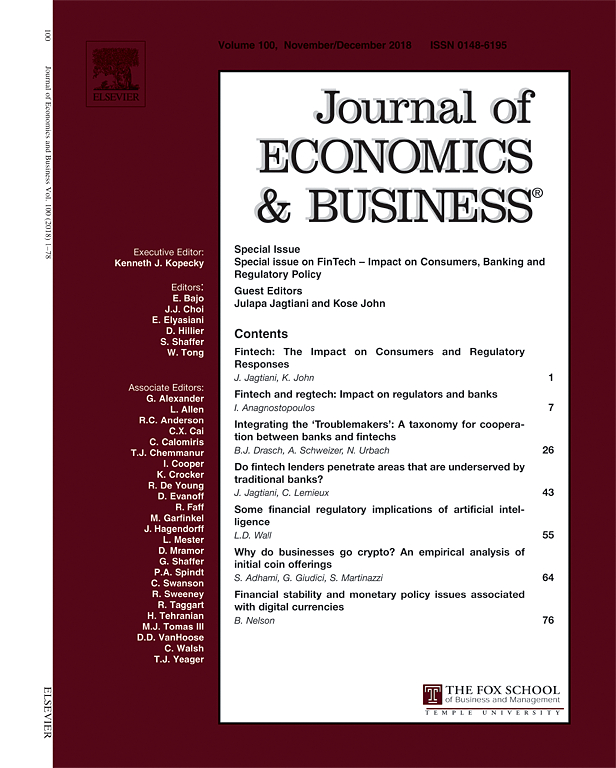
Does It Pay to Get Connected? An Examination of Bank Alliance Network and Bond Spread
in: Journal of Economics and Business, im Erscheinen
Abstract
This paper examines the effects of bank alliance network on bonds issued by European banks during the period 1990–2009. We construct six measures capturing different dimensions of banks’ network characteristics. In opposition to the results obtained for non-financial firms, our findings indicate that being part of a network does not create value for bank’s bondholders, indicating a dark side effect of strategic alliances in the banking sector. While being part of a network is perceived as a risk-increasing event by market participants, this negative perception is significantly lower for the larger banks, and, to a lesser extent, for the more profitable banks. Moreover, during crisis times, the positive impact on bond spread of a bank’s higher centrality or of a bank’s higher connectedness in the network is stronger, indicating that market participants may fear spillover effects within the network during periods of banks’ heightened financial fragility.
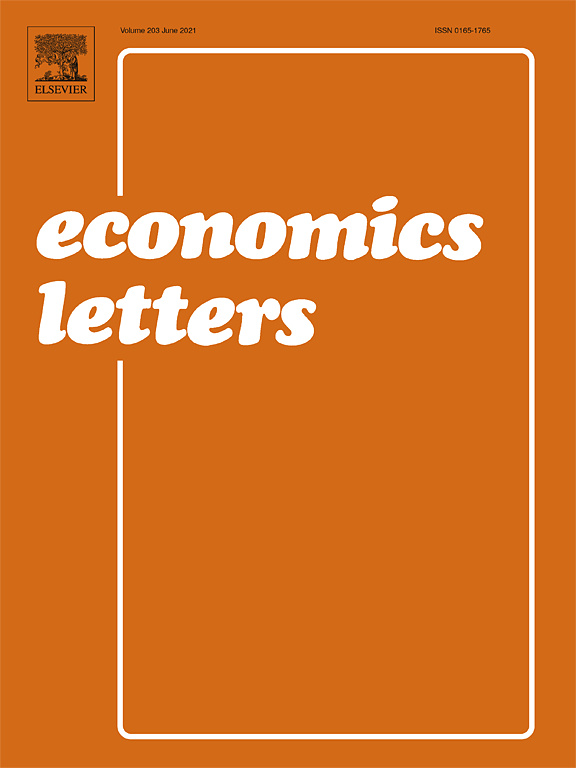
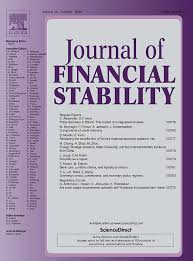
How Do EU Banks’ Funding Costs Respond to the CRD IV? An Assessment Based on the Banking Union Directives Database
in: Journal of Financial Stability, im Erscheinen
Abstract
<p>The establishment of the European Banking Union constitutes a major change in the regulatory framework of the banking system. Main parts are implemented via directives that show staggered transposition timing across EU member states. Based on the newly compiled Banking Union Directives Database, we assess how banks’ funding costs responded to the Capital Requirements Directive IV (CRD IV). Our findings show an upward trend in funding costs which is driven by an increase in cost of equity and partially offset by a decline in cost of debt. The diverging trends are most present in countries with an ex-ante lower regulatory capital stringency, which is in line with banks’ short-run adjustment needs but longer-run benefits from increased financial stability.</p>
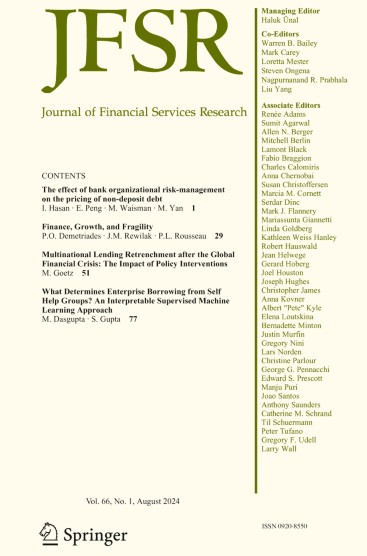
The Effect of Bank Organizational Risk-management on the Price of Non-deposit Debt
in: Journal of Financial Services Research, April 2024
Abstract
<p>We test whether organizational risk management matters to bondholders of U.S. bank holding companies (BHCs), and find that debt financing costs increase when the BHC has lower-quality risk management. Consistent with bailouts giving rise to moral hazard among bank creditors, we find that bondholders put less emphasis on risk management in large institutions for which bailouts are expected ex-ante. BHCs that maintained strong risk management before the financial crisis had lower debt costs during and after the crisis, compared to other banks. Overall, quality risk management can curtail risk exposures at BHCs and result in lower debt costs.</p>
Arbeitspapiere

Friend or Foe? Crowdfunding Versus Credit when Banks are Stressed
in: IWH Discussion Papers, Nr. 8, 2015
Abstract
Does bank instability push borrowers to use crowdfunding as a source of external finance? We identify stressed banks and link them to a unique, manually constructed sample of 157 new ventures seeking equity crowdfunding. The sample comprises projects from all German equity crowdfunding platforms since 2011, which we compare with 200 ventures that do not use crowdfunding. Crowdfunding is significantly more likely for new ventures that interact with stressed banks. Innovative funding is thus particularly relevant when conventional financiers are facing crises. But crowdfunded ventures are generally also more opaque and risky than new ventures that do not use crowdfunding.
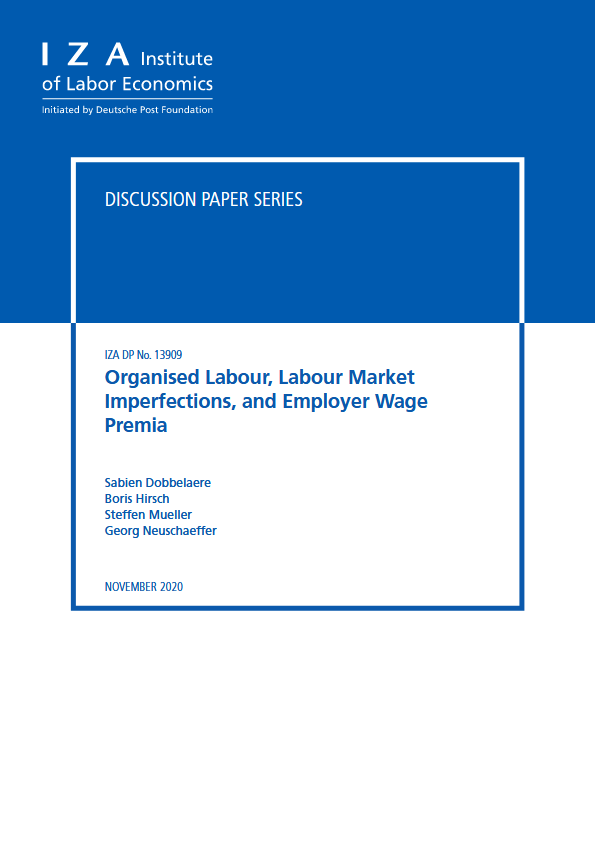
Explaining Regional Disparities in Housing Prices across German Districts
in: IZA Institute of Labor Economics, March 2022
Abstract
Over the last decade, German housing prices have increased unprecedentedly. Drawing on quality-adjusted housing price data at the district level, we document large and increasing regional disparities: growth rates were higher in 1) the largest seven cities, 2) districts located in the south, and 3) districts with higher initial price levels. Indications of price bubbles are concentrated in the largest cities and in the purchasing market. Prices seem to be driven by the demand side: increasing population density, higher shares of academically educated employees and increasing purchasing power explain our findings, while supply remained relatively constrained in the short term.















